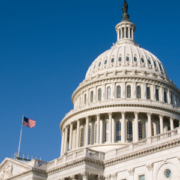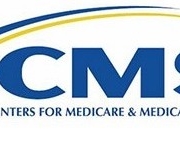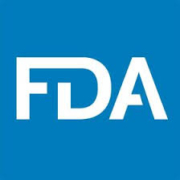The following is the latest information from the federal government as of 2:30 p.m. on Tuesday, July 28.
Senate “HEALS” Act

- Increasing the time providers will have before CMS begins recoupment of loans made through the Accelerated and Advance Payment Program and an extension of the time before providers will need to pay interest on those loans.
- $25 billion to be added to the CARES Act’s Provider Relief Fund.
- Extension of the current Medicare telehealth waivers through 2021 or until the end of the COVID-19 public health emergency.
- Liability protection for health care facilities and providers.
- A freeze on 2021 Medicare Part B premiums and deductibles at 2020 levels.
- Additional funding for COVID-19 testing and contact tracing, the NIH, CDC, FQHCs, rural health centers, and vaccines, therapies, and diagnostic tools.
NASH sent a more detailed memo about the proposal to its members earlier today.
Department of Health and Human Services
- HHS has updated its CARES Act Provider Relief Fund FAQ with two modifications on pages 15 that address sharing Provider Relief Fund general distributions with related entities and another on page 30 about the Medicaid-only distribution. All are marked “Modified 7/23/2020.”
Centers for Medicare & Medicaid Services
CMS has updated its FAQ on Medicare fee-for-service billing with new information about the use of the CS modifier when coding for certain Medicare-covered telehealth services and/or evaluation/management (E/M) visits. See pages 68 and 69 for details.
- An MLN Matters special edition article about fee-for-service waivers effective during the public health emergency has been modified to clarify how coinsurance and deductible waivers apply to lab tests regardless of the HCPCS codes used to report those tests.
- CMS issued a new MLN Matters publication detailing how inpatient care settings operating under a CLIA waiver can be paid for antigen tests authorized by the FDA as of July 2. Modifier QW must be added to HCPCS code 87426 (which describes this testing) and providers should request that MACs reprocess any claims previously denied for failing to append the QW modifier. MACs will not retract payment for claims already paid.
- CMS has created a “Home Health COVID-19 PHE Tip Sheet” to help home health providers understand the status of the Home Health Quality Reporting Program (QRP) during the COVID-19 public health emergency. The tip sheet includes guidance addressing home health quality data submission requirements starting July 1, 2020, now that the temporary Home Health QRP exemptions from the COVID-19 public health emergency have ended.
- CMS has created an “LTCH COVID-19 PHE Tip Sheet” designed to help long-term-care hospitals (LTCHs) understand the status of the LTCH Quality Reporting Program (QRP) during the COVID-19 public health emergency. It includes guidance addressing LTCH quality data submission requirements starting July 1, 2020, now that the temporary LTCH QRP exemptions from the COVID-19 PHE have ended.
CMS COVID-19 Stakeholder Calls
CMS hosts recurring stakeholder engagement sessions to share information related to the agency’s response to COVID-19. These sessions are open to members of the health care community and are intended to provide updates, share best practices among peers, and offer attendees an opportunity to ask questions of CMS and other subject matter experts.
Lessons from the Front Lines
Lessons from the Front Lines calls are a joint effort between CMS Administrator Seema Verma, FDA Commissioner Stephen Hahn, MD, and the White House Coronavirus Task Force. Physicians and other clinicians are invited to share their experience, ideas, strategies, and insights with one another related to their COVID-19 response. There is an opportunity to ask questions of presenters.
Friday, August 7 at 12:30 – 2:00 PM Eastern
Toll Free Attendee Dial-In: 833-614-0820; Access Passcode: 4695240
Audio Webcast Link: go here.
CMS COVID-19 Office Hours Calls
Office Hour Calls provide an opportunity for hospitals, health systems, and providers to ask questions of agency officials regarding CMS’s temporary actions that empower local hospitals and health care systems to increase hospital capacity, expand the health care workforce, and promote the use of telehealth in Medicare.
Tuesday, August 4 at 5:00 – 6:00 PM Eastern
Toll Free Attendee Dial In: 833-614-0820, Access Passcode: 3296947
Audio Webcast link: go here
Tuesday, August 11 at 5:00 – 6:00 PM Eastern
Toll Free Attendee Dial In: 833-614-0820; Access Passcode: 3498643
Audio Webcast link: go here.
Home Health and Hospice
Tuesday, August 11 at 3:00 – 3:30 PM Eastern
Toll Free Attendee Dial-In: 833-614-0820; Access Passcode: 5097566
Audio Webcast Link: go here.
Nursing Homes
Wednesday, August 12 4:30 – 5:00 PM Eastern
Toll Free Attendee Dial-In: 833-614-0820; Access Passcode: 7857618
Audio Webcast Link: go here
Dialysis Organizations
Wednesday, August 12 at 5:30 – 6:00 PM Eastern
Toll Free Attendee Dial-In: 833-614-0820; Access Passcode: 1027088
Audio Webcast Link: go here.
Nurses
Thursday, August 13 at 3:00 – 3:30 PM Eastern
Toll Free Attendee Dial-In: 833-614-0820; Access Passcode: 7844289
Audio Webcast Link: go here.
The Federal Reserve
- The Federal Reserve has posted an FAQ for its Main Street Lending Program, which it opened last week to participation by non-profit organizations, including hospitals. Learn more about changes in the program from the July 21 edition of NASH’s Noteworthy News.
Food and Drug Administration
The FDA has issued an emergency use authorization (EUA) for a commercial device to be used by health care providers as an extra layer of barrier protection to prevent exposure to pathogenic biological airborne particulates by providing isolation of hospitalized patients with suspected or confirmed diagnosis of COVID-19 at the time of definitive airway management, when performing airway-related medical procedures, or during transport of such patients during the COVID-19 pandemic.
- The FDA has issued an EUA for a device for use in decontaminating compatible N95 respirators for single-user reuse by health care personnel.
- The FDA has reissued an EUA for a commercial COVID-19 diagnostic test to include two new indications for use: testing for people who do not have COVID-19 symptoms or who have no reason to suspect COVID-19 infection, and to allow pooled sample testing. The reissuance includes authorization for the commercial laboratory to test pooled samples containing up to five individual swab specimens collected under observation. See the FDA’s announcement here.
- The FDA has updated its Testing Supply Substitution Strategies slide show to include validated supply alternatives that labs can use to continue performing testing when there is a supply issue with some components of a molecular test.
- The FDA has issued EUAs for three commercial diagnostic tests for COVID-19. Find them here, here, and here.
Centers for Disease Control and Prevention
- The CDC has updated its guidance about the COVID-19 data laboratories must report to their local and state authorities.
Federal Funding Opportunities for Hospitals
- NASH has prepared a document that collects and presents in one place the various new federal funding opportunities for hospitals resulting from legislation addressing the COVID-19 public health emergency. Find that document here.
To receive this daily update directly, sign up for our mailing list at info@safetynetalliance.org.)

 CMS has updated its FAQ on Medicare fee-for-service billing with
CMS has updated its FAQ on Medicare fee-for-service billing with  The FDA has issued an emergency use authorization (EUA) for
The FDA has issued an emergency use authorization (EUA) for 